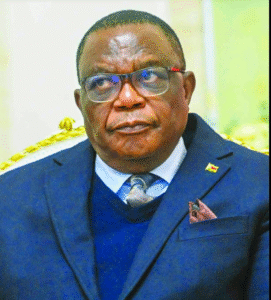THE HERALD, MANGWANA, AND THE GHOST STORY THAT WON’T HOLD UP
In what can only be described as a spectacular misfire, The Herald and government spokesperson Nick Mangwana have thrown themselves into a media storm of their own making. Their recent claim that two senior journalists tried to extort a foreign diplomat is now unraveling—not because the public dismisses the seriousness of corruption in journalism, but because the state has chosen secrecy over substance, whispers over facts.
According to The Herald’s vague and explosive article, these journalists attempted to blackmail a European diplomat by threatening to publish a fake story unless a bribe was paid. It’s a scandalous allegation. But here’s the catch: they refuse to name names. They claim to have evidence but won’t show it. And somehow, we are expected to trust the story as gospel truth.
This is not how journalism—or governance—should work.
When media outlets break corruption stories, they typically do so with evidence: leaked emails, official documents, insider testimonies. But in this case, we have nothing. No journalists named. No diplomat identified. No dollar figures given. No supporting documentation. Just a story that reads more like a poorly written political thriller than a factual exposé.
The public, quite rightly, is not buying it.
If The Herald and Mangwana are serious about fighting corruption in the media, why shield the alleged culprits? Why not publish the names and let the law take its course? Why the sudden moral high ground built on secrecy? The answer is simple: this is not about fighting corruption. This is about controlling the narrative.
Investigative journalist Hopewell Chin’ono, never one to stay silent in the face of hypocrisy, put it bluntly—this smells like a state-engineered smear campaign. If this incident were real, Chin’ono argues, it would be splashed across every state-owned media outlet, complete with names, photos, and dramatic coverage. Instead, we get an anonymous ghost story, conveniently timed and deliberately vague.
This isn’t journalism. This is weaponized speculation.
And that makes it dangerous.
Fake news thrives in environments where truth is held hostage. When powerful institutions publish shadowy accusations with no evidence, they don’t just smear individuals—they erode public trust. They train citizens to accept rumor as fact, to believe headlines without questioning the source, and to fear transparency rather than demand it.
By refusing to name the journalists involved, The Herald and Mangwana have made themselves part of the very problem they claim to expose. They’ve turned an alleged anti-corruption effort into a circus, casting doubt not only on this story but on every future story they publish. In trying to cry wolf, they’ve become the wolf.
The people of Zimbabwe deserve better. They deserve real journalism—journalism that investigates, reveals, and holds power to account. Not journalism that hides behind state privilege and political gamesmanship.
If this story is real, let’s see the facts. Let’s see the names. Let’s see the evidence.
Until then, this is just another distraction from the real issues facing Zimbabwe: a broken economy, a health system in crisis, political repression, and the ever-tightening grip of a regime more interested in silencing critics than solving problems.
In conclusion, this saga is not just about two unnamed journalists and a diplomat. It’s about integrity. It’s about whether the media is used to inform or to intimidate. And most of all, it’s about whether Zimbabweans will continue to be treated as passive consumers of propaganda or as citizens worthy of the truth.



